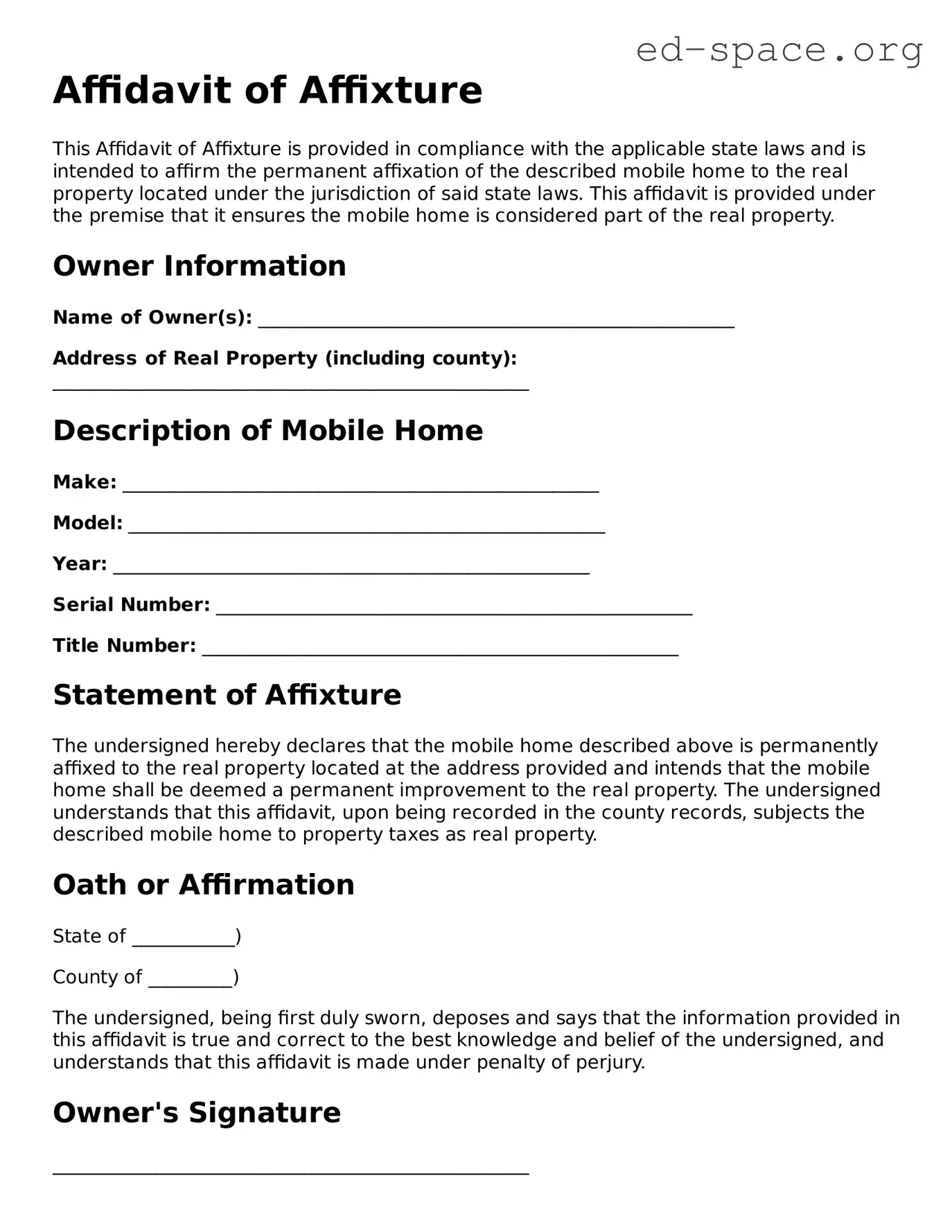What is an Affidavit of Affixture?
An Affidavit of Affixture is a legal document that certifies a mobile or manufactured home has been permanently attached to land. Once filed, the home is legally considered part of the real estate, which can affect financing, taxation, and sale.
Why do I need an Affidavit of Affixture?
This document is crucial if you're seeking to finance, sell, or insure a manufactured home as real property. It helps in the transition of the home's status from personal property to real property, ensuring it benefits from real estate laws and protections.
How do I file an Affidavit of Affixture?
Filing procedures can vary by state. Generally, you must complete the affidavit form, attach any required documents (such as a title or a certificate of location), and submit it to the local county recorder or assessor's office.
What information is required on the Affidavit of Affixture?
The form requires details about the homeowner, the description of the manufactured home (including make, model, and serial number), the legal description of the property, and verification of the home's permanent attachment to the land.
Who needs to sign the Affidavit of Affixture?
Typically, the homeowner and any lienholders must sign the affidavit. In some jurisdictions, a notary public must also witness and notarize the signatures to authenticate the document.
Does an Affidavit of Affixture affect property taxes?
Yes, once a manufactured home is affixed to land and the affidavit is filed, the property is assessed as real estate, which can change its taxation status. This often results in the property taxes being assessed together with the land.
Can an Affidavit of Affixture be reversed?
Reversing an Affidavit of Affixture is challenging and varies by jurisdiction. Generally, it requires legal action and the approval of the local government, making it a rare and complex process.
What happens if I sell the property after filing an Affidavit of Affixture?
Once the affidavit is filed, the manufactured home and the land are sold together as one entity. This simplifies the sale process by treating the property as traditional real estate.
Is there a cost to file an Affidavit of Affixture?
While the specific costs can vary by location, there is typically a filing fee at the county recorder's or assessor's office. Additional costs may include notarization fees or professional services if you hire legal help to prepare the document.
What if my manufactured home is on leased land?
Filing an Affidavit of Affixture on leased land is more complex and often requires agreements that satisfy both the landowner and the lessee. In such cases, it's crucial to seek legal advice to navigate the specifics of attaching a manufactured home to leased land.
